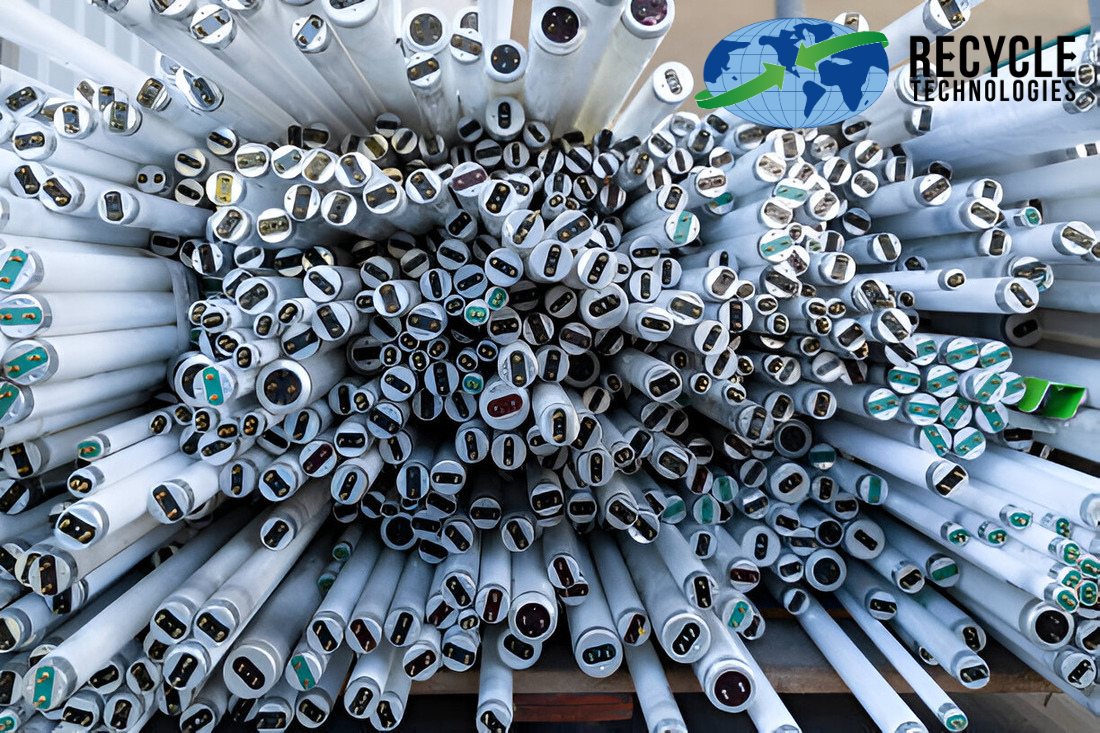Don’t be a victim – vet your recycler or pay the price
Where do you send your used mercury-containing lamps when they leave your building? If your answer involves a recycling facility, you’re ahead of the curve because many building operators don’t recycle lamps containing mercury properly, even though the highly toxic substance has serious environmental and health implications. However, unless you’ve truly vetted your recycler, you may be unintentionally sending lamps to the landfill after all. This is one situation where what you don’t know can really cost you. Sham Recycling Defined. A light bulb processor accepts un-broken bulbs that contain mercury, such as fluorescent lamps, and uses a tightly controlled process to remove and separate the mercury from the lamp so they can sell it back to the commodity market, explains Lynn Petros, owner, CEO, and chief environmental officer of Recycle Technologies, a recycler that partners directly with customers. A broker, by contrast, collects the lamps from your facility but pays a processor to do the actual recycling. Both can be valid options for lamp recycling, but it pays to make sure you’re using a legitimate business.
Start by adopting the downstream auditing process to check out companies you’re not familiar with. ALMR recommends these additional steps :Pricing: “As with many things, you usually get what you pay for,” ALMR notes. “Question pricing and get more than one quote. ”Service: Examine responsiveness, timeliness, program flexibility and customization, the personnel you will work with, any intermediates involved, and the firm’s capability and equipment. If your recycler is caught improperly disposing of mercury-containing lamps, you’re ultimately responsible for any ensuing fines or cleanup costs. “Some red flags are bold claims or companies that are not recyclers claiming to be recyclers,” adds Paul Abernathy, executive director of the Association of Lighting and Mercury Recyclers (ALMR), of which Recycle Technologies is a board member. “Unless you specify in a contract that they have to provide you with evidence of proper disposal, then your bulbs and money are gone and you have no idea where your light bulbs end up. ”Audit Your Current Recycler Verifying the legitimacy of your current partner is similar to checking out a new company, minus the price and service quality you’ve observed from doing business with them. However, it’s not difficult to trace the path your bulbs have taken, especially if you’ve chosen a truly trustworthy broker or processor. “Do a downstream audit,” Petros ex-plains. “You want to understand whether you’re using a processor or broker. If it’s a broker, who is the broker using? ”Also find out what happens to the separated components, especially the mercury-tainted phosphor powder, Petros says. For example, Recycle Technologies processes bulbs, but ships the powder and filters to a distillation company. Other companies may send contaminated parts to a hazardous waste landfill, which may or may not meet your standards. The destination facility must issue you a certificate of recycling that verifies proper disposal. Brokers can’t legally issue these, but the processor they use should, so the absence of this document is a major problem. Ask about the street address of your bulbs’ ultimate destination, a certificate from the actual recycler, and the turn-around time between when your bulbs arrive and when processing is finished. Processors are heavily regulated by the EPA and each state, so also make sure to ask for references or contact state agencies about environmental and compliance histories, Abernathy advises. Look into the company’s financial health, insurance for general and pollution liability, indemnities or other assurances, permits and approvals for facility operation or transportation, operations, and safety procedures and records, vapor control and monitoring, hygiene and medical surveillance, facility closure plans, audit reports, and key regulatory contacts. How to Find a New Recycler If you’re unsatisfied with your current recycler or just starting a formal lamp re-cycling program, minimize your liability by properly vetting potential business partners. Ask your local electrical distributor about mail-back programs or find national recyclers at lamprecycle.org, advises Joseph Howley, chairman of NEMA’s lamp section and manager of industry relations Risk Management: Any company that quotes you a recycling price should also demonstrate compliance with the same regulatory and environmental criteria you’d apply to a current business partner. If you can’t get satisfying answers, don’t contract with that company. “These are all reasonable questions to ask,” Abernathy says. “But the onus is on you.”












